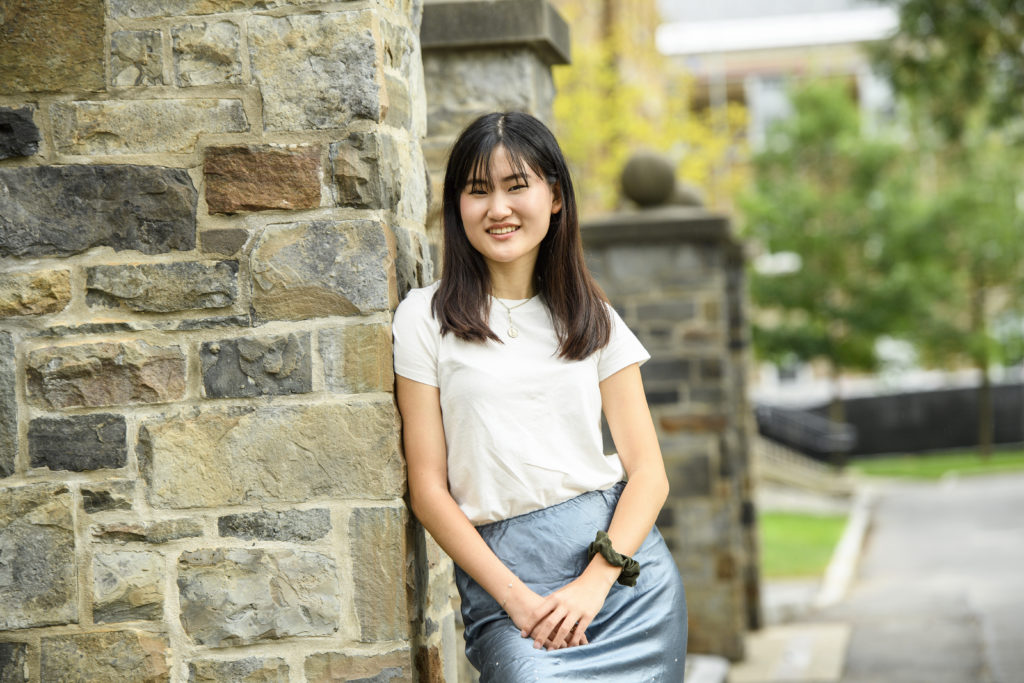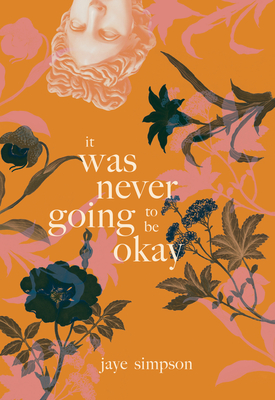
We’ve been so lucky to have had Rachel Lu contributing content to the blog this year, and this holiday weekend, we thought we’d take a (long-overdue!) moment to help you get to know her better. Rachel is a recent graduate of Hamilton College, where she received honors in English literature and Chinese language and literature. She is editor-in-chief of COUNTERCLOCK and currently resides in the San Francisco Bay Area. Read on to learn more about her favorite contemporary titles by Asian American writers, her childhood passion for books and her first novel (written in third grade!), the scholarly interests that capture her attention these days, and more.
* * *
LANTERN REVIEW: Tell us a little bit about yourself. How did you come to your love for literature and writing?
RACHEL LU: I can’t remember ever not loving reading. Growing up, my dad used to always read stories to me. One of the games we’d play in the car would be reciting first lines from classic literature until one of us gave up. I’m grateful to have been able to grow up in an environment that really promoted literature. I think, over the years, while I’ve continued to love reading, I’ve definitely become more appreciative of literature—of its aesthetic and political powers.
My writing and reading habits have always been intertwined. Since the first grade, I’ve been making up stories in my head, and they manifested into playground stories for my friends or bedtime stories for my sister. I wrote my first “novel” in the third grade—I didn’t have a computer at the time, so my friends helped me type it up, print it, bind it and distribute it. It’s hilarious to look back on, but I remember being so proud that people were reading my work. And I’ve kept writing since then. I think early on, I started writing because I had so many stories in my head that I just wanted to get down, while later, I found writing a fascinating endeavor because it would always articulate to me something that I wouldn’t be able to express otherwise.
These days, I find myself unable to really write creatively anymore. It’s not that I no longer want to write creatively, but as I became more invested in literary criticism and scholarship, I’ve kind of lost access to that creative channel.
LR: You’re interested in literary scholarship as well as in craft. What topics and themes tend to drive your creative and critical work?
RL: In my critical work, I’m interested in questions of gender, sexuality, power, and identity and in examining the power relations and social and economic mores that construct the individual.
My creative work felt much more internal in that I was always interested in performing a deep dive into a character’s psyche rather than exploring the “outside” world. It’s interesting because it wasn’t that I ever set out to write about a certain topic, but I found myself returning most often to problems of miscommunication and misinterpretation.
LR: You were recently named editor-in-chief of COUNTERCLOCK, a journal you’ve been involved with for a number of years. Congratulations! Since it came onto the scene in 2017, COUNTERCLOCK has been known for its diverse roster of contributors, as well as for the way it’s sought to provide opportunities for young, emerging writers through its fellowships and more. Can you talk about what it’s been like to be involved in shaping the literary landscape through your work there? As EIC, what’s your vision for where you’d like the magazine to go?
RL: Thank you! As you noted, supporting emerging, especially young, writers was an objective that the former editor, Sarah Feng, prioritized, and something that I hope to continue to carry on. My time at COUNTERCLOCK, from prose reader to managing editor to editor-in-chief, has provided me some insight into the contemporary writing, especially poetry, landscape that I wouldn’t have had otherwise, and it’s made me realize how small the poetry world can sometimes be. I think that’s made me more eager to find and platform new voices, whether they’re younger or older writers.
Since we’ve come back from hiatus and have restructured our team, we’ve been trying to slowly retrace our steps. As EIC, I’ve been focusing on getting us back to a triannual publication schedule, bringing back our Emerging Writers Awards, and building our blog, not only with book reviews and author interviews, but also on publishing more “cultural” criticism and miniseries. We’ve published a few miniseries in the past, like “Self-Care in a Global Pandemic” and “Childhood Ruined: Critically Reviewing Childhood Media,” and those tend to be not only my favorite blog articles but also the most popular ones on the blog, so I’d definitely love to do more of those.
LR: What are some of your favorite Asian American writers and books of the moment?
RL: I really love Sianne Ngai’s Our Aesthetic Categories. Min Jin Lee’s Pachinko is one of my all-time favorites. I’m also currently reading Ling Ma’s Bliss Montage, which has been great so far. Someone I really admire is Viet Thanh Nguyen. Both his creative and critical work are incredible. I can’t wrap my head around how he makes the time to do both and to do both really well. His academic book Race and Resistance: Literature and Politics in Asian America is a book that I think every Asian American interested in the arts landscape should read. He discusses the idealization of Asian America that dissimulates the commodification of our racial identity among other issues. And of course, I love his novels too.
LR: What’s your go-to karaoke song?
RL: My go-to karaoke song is probably anything from ABBA! I switch up the ABBA song depending on the mood (e.g. “Voulez-Vous” when I’m in a Europop disco mood, “SOS” for nostalgic sad pop).
LR: What’s something you wish you could tell your younger self?
RL: Pay attention in Chinese class! I tried to actively not learn as much Mandarin Chinese as I could for a while and that worked out pretty well. In college, I picked up a second major in Chinese to make up for that time lost, among a couple other reasons, but I’ll always have an accent when I speak. And I’d also tell my younger self that knowing Chinese doesn’t make you any less American.
LR: What are you hungry for in the future of Asian American arts and letters?
RL: This is a question I’ve been sitting on for a few days now, and I’m not quite sure how to answer it. There’s not one specific thing that I’m hungry for. To me, the question is, what constitutes as Asian American arts and letters? Is it that Asian American individuals created the art, and that makes it Asian American art? Or is it some topic of the art that makes it Asian American art? If it’s the former, it’s difficult for me to say something specifically because there’s not really a specific topic I hope to see written about. I’m interested in anything that’s good art, that can viscerally impact you or stop and make you think for a moment. Those are the moments I crave.
Every so often, I’ll get into a reading slump where I read a series of bad or even mediocre books in a row, and I become convinced that I no longer enjoy reading anymore, that it just doesn’t hit the same as it once did. And then I’ll pick up a book that reminds me exactly why I love reading. I went through that phase recently. Then I read The Sluts by Dennis Cooper, which was absolutely phenomenal and so intelligent in its structural complexity but also so depraved and violent.
It’s pretty inexplicable, isn’t it? That words on a page have so much power to move us. But I’m hungry for more of those moments, where I’m reminded of the transformative, compelling capacity of literature and art in general.
ALSO RECOMMENDED
It Was Never Going to Be Okay by Jaye Simpson (Nightwood, 2021)
Please consider supporting a small press or independent bookstore with your purchase.
As an Asian American–focused publication, Lantern Review stands for diversity within the literary world. In solidarity with other communities of color and in an effort to connect our readers with a wider range of voices, we recommend a different collection by a non-Asian-American-identified BIPOC poet in each blog post.
